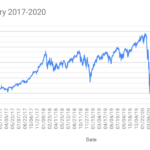Strike Affects 45,000 Dock Workers and U.S. Ports on East and Gulf Coasts
- Port strikes to disproportionately affect auto industry, says Goldman Sachs
- ILA strike affects 14 major ports and a larger group of smaller ports on the U.S.’s Gulf and East coasts
- Strike likely to last less than two weeks, predicts Goldman Sachs analysts
- 10-day strike could reduce U.S. GDP by 0.2% in Q4 and cut payroll growth by 45,000 jobs
- Auto manufacturers may face production slowdown if strikes last longer than expected
Port strikes in the U.S. are likely to have a relatively minor impact on America’s gross domestic product while serving a disproportionate hit to retailers and manufacturers in sectors that are heavily reliant on seaborne trade, including the auto industry, according to Goldman Sachs. The International Longshoremen’s Association (ILA) strike saw 45,000 dock workers walk out their jobs indefinitely, shutting down 14 major ports and a larger group of smaller ports on the U.S.’s Gulf and East coasts. Goldman Sachs analysts predict that if the port strikes last longer than expected, U.S. producers and manufacturers could be forced to scale down production, leading to a sharper hit to America’s GDP. A 10-day ILA strike could reduce the U.S. GDP by 0.2% in the fourth quarter of 2024 and cut payroll growth by around 45,000 jobs. The auto industry is particularly vulnerable due to its heavy reliance on imports and exports through America’s ports. Ford F shares increased 2%, while General Motors GM New York listed shares rose fractionally. Stellantis’s STLA New York listed shares fell 2% Tuesday, and Toyota Motor Corp JP:7203 shares dropped 1% on Wednesday.
Factuality Level: 8
Factuality Justification: The article provides accurate and objective information about the potential impact of port strikes on the U.S. economy and specific industries. It cites a reputable source (Goldman Sachs) for its analysis and includes relevant details about previous transportation sector strikes. However, it could have provided more context on the ILA’s demands and reasons for striking.
Noise Level: 4
Noise Justification: The article provides relevant information about the potential impact of port strikes on specific industries and the U.S. economy, with some analysis from Goldman Sachs. It also mentions the possible effects on certain companies’ stocks. However, it could benefit from more in-depth exploration of the long-term consequences and solutions for affected businesses.
Public Companies: Goldman Sachs (GS), Ford Motor Company (F), General Motors (GM), Stellantis (STLA), Toyota Motor Corporation (7203)
Key People: Jan Hatzius (Analyst at Goldman Sachs)
Financial Relevance: Yes
Financial Markets Impacted: The strike is likely to have a disproportionate impact on the clothing, furniture, food product, and auto industries due to their high exposure to imports and commodity-based industries. It also affects specific companies such as Ford, General Motors, and Stellantis.
Financial Rating Justification: The article discusses the financial implications of a port strike in the U.S., which impacts certain industries and affects the stock prices of companies like Ford, General Motors, and Stellantis.
Presence Of Extreme Event: No
Nature Of Extreme Event: Other
Impact Rating Of The Extreme Event: Minor
Extreme Rating Justification: While the port strikes may have a negative impact on certain industries and the economy, they are not considered an extreme event as they are not catastrophic or major in nature. The strike is focused on labor negotiations and does not result in significant loss of life, injuries, or long-term consequences.
Move Size: No market move size mentioned.
Sector: Automotive
Direction: Down
Magnitude: Medium
Affected Instruments: Stocks
 www.marketwatch.com
www.marketwatch.com 





